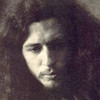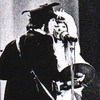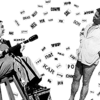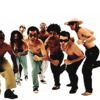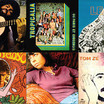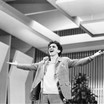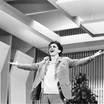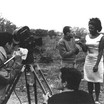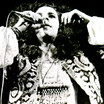Ilumencarnados seres

rogério duprat
Interviews
Ana de Oliveira – What made an erudite musician like you, connected to the European avant-garde, get interested in Brazilian music?
Rogério Duprat – Actually, it didn’t happen all of a sudden. I had taken part in a group of arrangers who followed Bossa Nova. At a certain moment, I started teaching music in Brasilia. But the militaries thought that I, my brother Régis, Damiano Cozzela, Moacir del Picchia and Cláudio Santoro were subverting the order. In fact, we had a peculiar way of teaching. In the end of 65, they started to arrest people. So we decided to quit, together with hundreds of teachers. I came back to São Paulo and, in 67, Júlio Medaglia put me in touch with Caetano Veloso and Gilberto Gil.
Ana de Oliveira – What first called your attention in Caetano and Gil’s attitude and music?
Rogério Duprat – Their desire to abandon the tackiness of the backyard silly music and to absorb universal culture, electronic music, the Beatles, integrating new instruments into the Brazilian popular music.
Ana de Oliveira – And what fascinated you about the Mutantes?
Rogério Duprat – Their modern and international way of singing, composing and playing. They were rock’s avant-garde. The rest was Roberto Carlos’ program. I have nothing against him, but that was a simplified current of the international rock.
Ana de Oliveira – What are your considerations about Brazilian music at the time that the Tropicalista movement boomed?
Rogério Duprat – World was already spinning at that time. A strong civilization had been rising since Elvis Presley. The Beatles and the Rolling Stones came out and Brazil kept playing its familiar pandeirinho (a Brazilian kind of tambourine). Nothing against it, but to impose itself as something more modern Brazil had to find new instrumentals and compositions. For the nationalists displeasure, this meant internationalization. And Roberto Carlos and Wanderléa had already scored a success. It was inevitable that we did here something at the same level of what was going on in the world. Tropicália was the only movement that did something hard to do in the world with originality. I know nothing from the international rock repertoire of the time that compares to the song “Tropicália” by Caetano, arranged by Júlio Medaglia, in terms of music and lyric.
Ana de Oliveira – Was an exacerbated conservatism the reason for the reactions against Tropicalismo?
Rogério Duprat – Exactly. They intended to be a radical left-wing, but they were nothing of the kind because actually they defended more than old-fashioned values. The reaction of the MPB (Brazilian Popular Music) against us was absolutely silly.
Ana de Oliveira – How was the rehearsal of that show at Som de Cristal (nightclub), when you received the news that Vicente Celestino had died?
Rogério Duprat – This show was part of the Tropicalista intention of recovering old things from the Brazilian Popular Music. Vicente Celestino was the tragedy man. That was what drove him to the event at Som de Cristal, a tacky dancing environment with professional dancers. Tackiness was another route chosen by the Tropicalista manifestation. With all the Ângela-Maria-like singers, tackiness has fixed its roots in the Brazilian hearts. We hired Som de Cristal for the show and the dancers were there too, ready to work as they usually did. Vicente Celestino came to me and said: “Maestro, they are all insane in here!” He was so shocked that he didn’t come back at night. He died at dinner time.
Ana de Oliveira – What do you have to say about Tropicália’s heritage in the current panorama of the Brazilian popular music?
Rogério Duprat – That is a difficult question because at first sight Tropicália has had no heirs.





